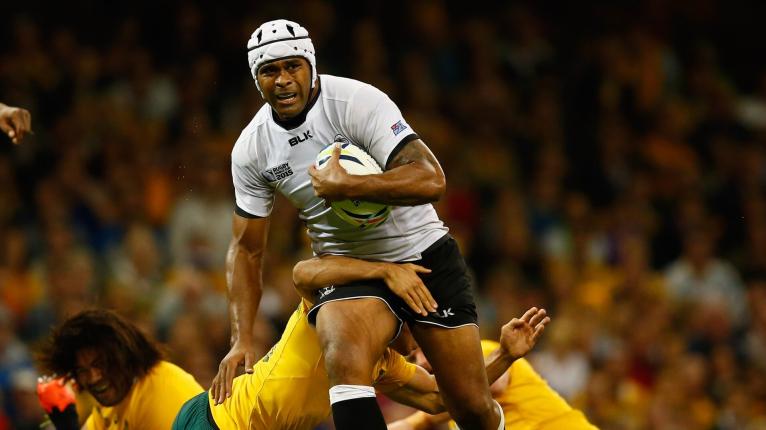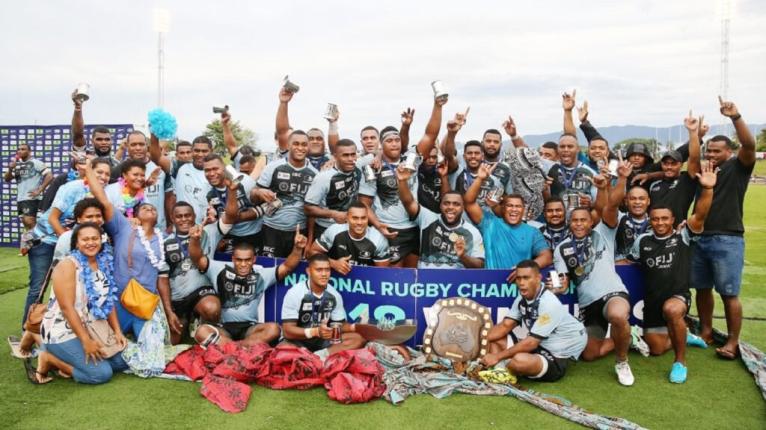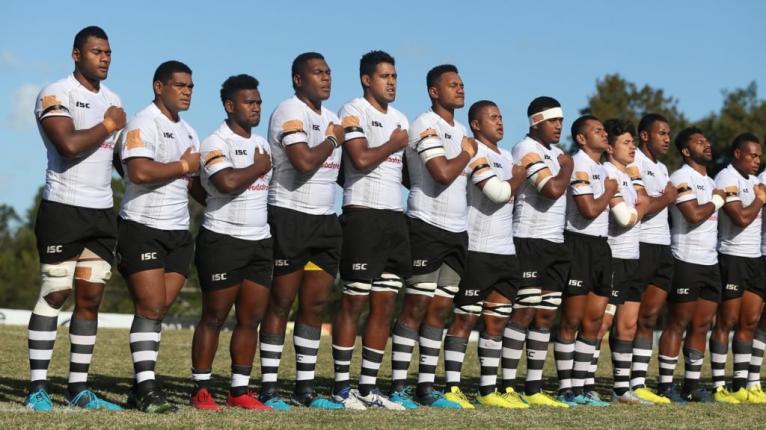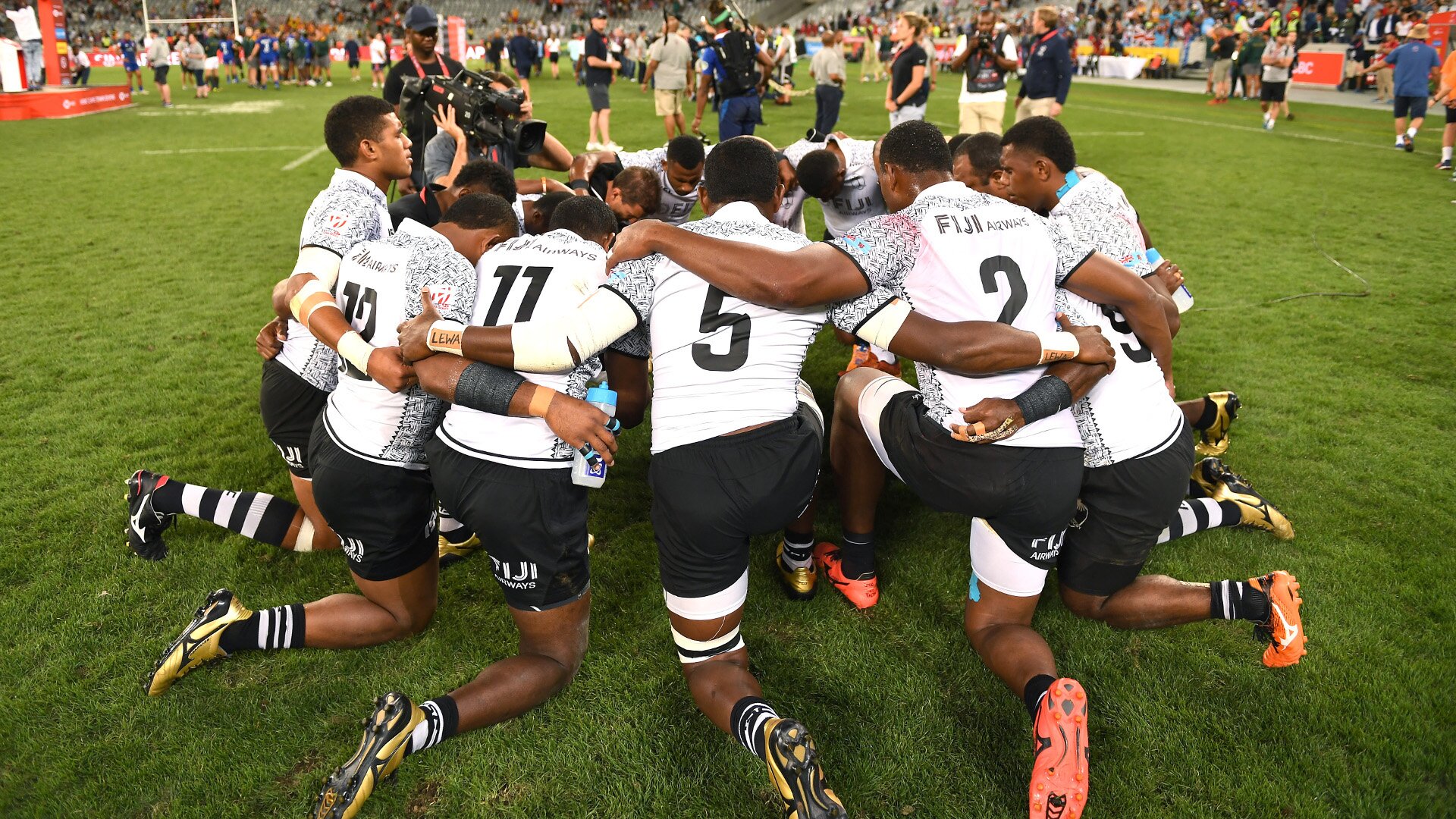'I'd like to think that over the last few years we've presented our credentials' - Time for Fiji to be elevated to Tier 1?

Sometimes in rugby there are flashpoints, moments that change the game forever.
When Argentina made it to the semi-finals of the 2007 Rugby World Cup, before beating France to third place, their growing case for inclusion could no longer be denied.
For Italy, consistently qualifying for RWCs and dominating the second tier of European competition was one thing, but as the 90’s went on and they began to pick up the scalps of Ireland, France and Scotland, their calls for involvement could no longer be denied, either.
Golden generations of both those sides were so impressive in those moments that they warranted their sides inclusion in the two major annual international tournaments in rugby, the then Five Nations and Tri-Nations championships.
The question is, has Fiji’s momentous victory over France in Paris, and a glittering array of supremely talented players, done the same for the island nation?
Rugby is preparing itself for a seismic shift in the coming years, with the calendar changing and a mooted ‘league of nations’ that will change the way the game is played at the international level. The result against France is one that rugby fans across the islands of Fiji will be hoping is the flashpoint that sees them regularly competing against the top nations in the world in the years to come.
That, after all, is what they need to take the next step. Whether it’s inclusion in The Rugby Championship or World Rugby’s vision of the international game in the ‘league of nations’, it seems to be the only way that Fiji can be guaranteed regular top-level competition, as well as the opportunity to adequately prepare for those fixtures.
It’s a belief that is echoed by Fiji Rugby’s General Manager, Geoff Webster, who has spoken exclusively to RugbyPass.
“Whatever form the future of global rugby takes, we think we deserve an opportunity to compete with the best.”
“Tier 1 and Tier 2 is just nomenclature derived from whether or not you’re in the Six Nations or The Rugby Championship. Italy are a Tier 1 nation and are ranked 15th in the world, we are a Tier 2 nation and ranked 8th. If World Rugby goes down the route of the ‘league of nations’ and it’s based on world ranking and current performance, we should become a Tier 1 nation, surely?”
“I think, sometimes, those terms are rattled around to our detriment and maybe to protect one or two teams.”
Continue reading below…
Watch: Highlights of the Fiji U18s against the NZ Schools Barbarians.
There’s no denying that, on the field, the gap between the so-called Tier 1 and Tier 2 nations has been closed, by Fiji in particular, but also the efforts of Japan, Georgia and the USA over the last few years, with several established scalps being taken by these sides, none of whom have the luxury of consistent matches against the top teams in the world to develop and fund their squads.
The proof has been there for everyone to see over the last couple of years and Webster believes that results such as the one they pulled off against France, do not have to be a one-off for the island nation.
“A game like France away, or Scotland at home, demonstrates that, with the right preparation, we can more than hold our own against the best teams in the world.”
“Whenever we tour or are in preparation to face a Tier 1 side, we come together for a couple of days before the first test and we generally underperform. This year, Scotland had already played Wales and we had had two real training days in Edinburgh before the test. We should have been ahead at halftime, but we had two guys sin-binned and then they blew us away in the second half.”
“By the time we had had a couple of weeks together under our belt, with good coaching and good strength and conditioning, we were super confident going in against France that we would acquit ourselves really well. Ultimately, we should have won by more, I mean, we had three tries disallowed in that game.”
“With an even playing field, which something like a league of nations would give us, we would be confident going into every fixture. The challenge is that we very rarely get that opportunity to bring players into camp and adequately prepare.”
Fiji have taken Italy’s path to date, knocking off teams that have resources and situations that they can only dream of, but to really push World Rugby’s hand, do they need to emulate Argentina and make a splash at next year’s RWC? Is that the final push that would need to happen for Fiji to take a regular spot in an annual ‘Tier 1’ competition?

“The opportunity to toss the Tier 1 teams in our pool would be the ultimate culmination of a couple of very successful years, and on the back of much hard work and focus. I’d like to think that over the last few years we’ve presented our credentials about where we sit in world rugby at the current time, though.”
“I can understand why some might view elevating a Pacific Island nation with a degree of caution, but we can only do the best with what we have at the moment and I think we have been very consistent under John McKee’s leadership.”
“If they’re going to expand this [league of nations] to 10 teams, we’d certainly deserve to be one of the 10 teams.”
Whilst World Rugby take a fair amount of flak for their treatment of the Pacific Islands in a world where everyone can offer an opinion on social media and have it pick up retweets and likes faster than a Josua Tuisova sidestep, their relationship with Fiji is far from one of neglect.
They have helped fund a number of projects on the islands, not least so the Fijian Drua side, which competes in the National Rugby Championship (NRC) in Australia. In their first year in the competition in 2017, the Drua made it to the semi-finals, before consolidating their place this year, beating Queensland Country, 36-26, in the final in Lautoka.
The side has helped develop players such as Eroni Mawi (RPI – 69) and Frank Lomani (79) and has given Fijian players on the islands an opportunity to hone their games and push for selection at a higher level, something which Webster believes is key to the health of the game in Fiji.
“It’s very important for the long-term viability of Fijian rugby. I think it’s been very influential on the Flying Fijians, although whilst I wouldn’t say that our results against France or Scotland have been directly attributable to that, it adds momentum.”

“It means guys on the island now have a real opportunity to impress the head coach. We’ve had 11 or 12 graduates from the Drua play for the Flying Fijians.”
“When you’re on a small island in the Pacific, the game can be quite insular. The players go hard against each other, but they’re not exposed to different ways of playing. Historically, we have struggled to produce tactical game-managers at 10, and that’s a function of the environment we are in. In the NRC, you need to have that, and we’ve now seen Freddy Veitokani blossom into a Flying Fijian. The NRC becomes a critical bridge between the provincial on-island competition and the international arena and we are very thankful to World Rugby and the Fiji Government for the funding they provide to us to do that.”

Understandably, however, the recent news that Super Rugby would not be considering a franchise in the islands, despite the success at the NRC level, has been met by frustration in Fiji.
“We think we’re ready and it’s clearly the next step for us, a professional team in the Asia-Pacific region.”
“Our Board had the vision, but I’m not sure how serious SANZAAR were about it. They asked for teams to bid but the financial requirements they put on us were so onerous that we couldn’t sustain it, so it was frustrating.”
“We like to think we could bring something different to the table and would be competitive in the mid-to-long term. We thought we would be looking at the finals by year three, but it doesn’t seem to be an option anymore, so we’re in discussions with Andrew Forrest’s Global Rapid Rugby. If that comes to fruition then we will be in the NRC and Global Rapid, and that’s a much better position than where we were sitting two years ago.”
Although Fijian rugby has been dealt a blow domestically by Super Rugby’s decision to look elsewhere for new franchises, there have been other reasons for optimism, not least so the performances of the age-grade side at the World Rugby U20 Trophy earlier this year.
Fiji won all three of their pool games at the tournament, averaging over 45 points a game, before seeing off Samoa, 58-8, in the final. This booked Fiji’s place back among the elite age-grade sides in the U20 Championship in 2019, where they will join reigning champions France, hosts Argentina and Wales in Pool A of the competition.
Maintaining their place in that tournament will be no easy task for the islanders, but their performances in the Trophy this year were a glimpse of what they are capable of and changes and programmes are afoot in Fiji that should allow them to consistently compete at a higher level over the coming years. Again, it’s another example of World Rugby funding being used in a very proactive way.
“I was surprisingly impressed. We had a pretty rugged preparation, to the point where our starting half-back was dropped on the morning of departure for an off-field indiscretion. We had lost all of our tight five from the previous year and I was nervous about that area, but they ended up holding their own. I was pleasantly surprised with how they were able to dominate competition, particularly in the final.”

“We knew this was the year we had to have a crack, because Japan are a very good team and put a lot of resources into that age-group and we knew they were demoted, so this was our chance to get up and we took it. Every team is in the same boat, that you have players graduate each year, but the challenge for us is that we just don’t have the depth in numbers that Tier 1 teams have.”
“I think what holds us in good stead for next year is that we’ve had a very good academy programme running for a few years. That started at the end of 2015 and only had 23 players in it, but had guys like Lomani, Mawi and [Mesulame] Kunavula coming out of it. It was just a matter of numbers.”
“Conceptually, I pitch us against the top nations, not just the other Pacific nations or the Tier 2 nations, and for us to be consistently competing at that level, we need to be producing a pipeline of players every year that are going into professional situations. The JIFF laws in France have had a detrimental impact on that and I think Brexit is going to be a bit of an issue potentially, too, so we’ve said that whatever we do, we need to expand our academy.”
“We have quadrupled it this year, going from 23 to 95, and we did a lot of talent ID, finding a couple of 14- and 15-year-old kids who are 6’6”, and just looking at areas where we are traditionally considered weaker as a nation, such as front row. Fijians are often quite late to mature, compared to Samoans and Tongans. Those boys are quite big units at 13 or 14, whereas our guys tend to be quite tall and lean, but they don’t really fill out until they’re in their early 20’s.”
“The beauty of the academy is that we can give them a bit of financial support, good coaching and they can get into the gym and physically develop very quickly. We are lucky that that’s partly-funded by World Rugby, through the targeted investment they give us, and we’re hopeful that this is a punt that’s going to pay off. If we have four times as many players on scholarship, then hopefully four times as many elite players are going to come out of it at the end of the day. Hopefully there will be a market for their services.”
“One of the things we heard coming out of France was that clubs thought the players had the talent, but it always takes a year or two to train them when they come to the club and that they don’t know how to operate, which is ironic coming from French clubs, but one of the things we said then is that we’re going to get these guys pro-ready. They know what they need to do, they go about their business well and they can perform for a club right from day one.”
“In the last two weeks, [Gareth] Baber has had two of our 20s playing in the sevens team, one of which is Vilimoni Botitu, who was the player of the tournament at the U20 Trophy. If he wins the rookie of the year on the HSBC Sevens, I wouldn’t be anywhere near surprised. He’s just stepped straight into it.”
“We are pretty blessed that we have the ability to produce players like that, we just need more of them!”
With Tier 1 scalps being taken at international level, the Drua rapidly rising to the top of the NRC, potential involvement in Global Rapid Rugby to come and the age-grade pathway in Fiji being expanded and the 20s returning to the elite tier of competition, if ever there were a time for World Rugby or SANZAAR to strike while the iron is hot and involve Fiji in top-tier international rugby, it is now.
As the game prepares to go into a new era and a new structure after the RWC in Japan next year, the number of excuses for keeping Fiji on the outside is dwindling and dwindling fast. The hard truth is that if an economy the size of Japan, the USA or China were performing at the level Fiji currently are, their involvement in top level rugby would be fast-tracked.
Fiji may not be able to match the financial firepower of those nations, but given that players born on the islands or descended from Fijian expats are helping prop up clubs and unions all over the world, surely, it’s time to bring them into the Tier 1 fold?
Fiji Rugby aren’t asking for favours, they just want the opportunity to compete and prove that they belong at a level which 10 other nations currently enjoy every year and which is protected, no matter their position in the world rankings.
Watch: RugbyPass’ Exceptional Stories: Ian McKinley































































































